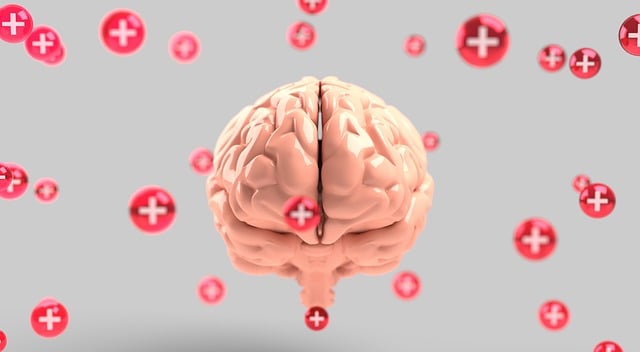Mental wellness groups for children prioritize safe spaces, stress reduction, and trauma support to combat issues like abuse and neglect. These sessions, focusing on therapy for young children and suicide prevention, use evidence-based techniques like CBT and group activities to foster emotional healing and resilience. Stigma reduction is key to encouraging open communication and access to necessary help. Facilitators create comfortable environments with icebreakers and interactive activities, empowering children with coping skills and stress management tools to enhance mental wellness and reduce suicide risk factors.
Mental wellness group facilitation plays a pivotal role in enhancing the lives of young children. This article explores essential techniques for therapists navigating the complex landscape of mental health support in this age group. From understanding the nuances of youth mental wellness to implementing effective group sessions, we delve into strategies that foster resilience and promote healthy development. Additionally, we highlight critical suicide prevention methods, offering a comprehensive guide for professionals aiding young minds.
- Understanding Mental Wellness in Young Children
- The Role of Group Facilitation in Therapy
- Techniques for Suicide Prevention and Support
- Practical Tips for Effective Group Sessions
Understanding Mental Wellness in Young Children

Mental wellness is a crucial aspect of a child’s overall development, and recognizing signs of distress in young ones is essential for timely intervention. Many children struggle with mental health issues that, if left unaddressed, can lead to severe consequences, such as suicide, especially during turbulent developmental stages. Facilitators play a vital role in navigating these challenges by creating safe spaces where kids feel comfortable expressing their emotions and sharing experiences.
Understanding the unique needs of young minds involves recognizing that stress reduction methods tailored for children differ from those used for adults. Trauma support services are integral to addressing underlying causes, such as abuse or neglect, which can significantly impact a child’s mental wellness. Additionally, stigma reduction efforts focused on mental illness among children and their families foster open communication, ensuring that these young individuals receive the help they need without fear of judgment.
The Role of Group Facilitation in Therapy

Group facilitation plays a pivotal role in therapy, especially when tailored for young children navigating mental wellness challenges. In the context of therapy for young children, group settings offer a unique and beneficial environment. Here, children can interact with peers facing similar struggles, fostering a sense of belonging and normalcy. This peer support is powerful, promoting positive thinking and encouraging empathy building strategies among participants. Group facilitation allows therapists to incorporate Mind Over Matter principles, helping kids develop resilience and coping mechanisms that extend beyond the therapy room.
The dynamic nature of group therapy sessions facilitates an exchange of experiences and perspectives, enriching the learning process for each child. Through shared narratives, kids learn they are not alone in their battles. This realization can significantly impact their mental wellness, potentially reducing the risk factors associated with suicide prevention among young individuals. By fostering connections, teaching valuable skills, and providing a safe space to express emotions, group facilitation becomes a powerful tool in enhancing children’s emotional intelligence and overall mental health.
Techniques for Suicide Prevention and Support

Suicide prevention within mental wellness groups requires specialized techniques tailored to address this critical issue. Facilitators should create a safe and non-judgmental space, encouraging open dialogue about suicide ideation without fear of stigma. Incorporating evidence-based practices like Cognitive Behavioral Therapy (CBT) can help identify and challenge suicidal thoughts, teaching children coping strategies for stress management.
Group activities focused on emotional healing processes, such as expressive art or storytelling, allow participants to process their feelings and build resilience. Mental illness stigma reduction efforts are integral to fostering a supportive environment where young individuals feel comfortable seeking help. By integrating these techniques, facilitators can effectively support at-risk children while promoting overall mental wellness within the group setting.
Practical Tips for Effective Group Sessions

Creating a safe and supportive environment is paramount for effective mental wellness group sessions. To foster meaningful discussions, facilitators should encourage active participation by all members, ensuring every voice is heard. This can be achieved through icebreakers, round-robin sharing, or interactive activities that promote comfort and build camaraderie. Utilizing practical tips like these creates an engaging atmosphere conducive to learning and healing.
Additionally, integrating coping skills development exercises tailored for young children can significantly contribute to suicide prevention efforts. Stress management workshops designed to teach mindfulness techniques and trauma support services focused on group therapy offer valuable tools for participants. By incorporating these strategies, facilitators empower individuals with effective tools to navigate challenges and promote overall mental wellness within the group setting.
Mental wellness group facilitation plays a pivotal role in fostering resilience among young children, offering a supportive environment for them to express their emotions and build coping strategies. By integrating techniques from therapy for young children and suicide prevention, facilitators can create a safe space that empowers and equips kids with the skills to navigate mental health challenges. These group sessions not only enhance overall well-being but also promote healthy social interactions, ensuring children feel understood and supported in their journey towards emotional maturity.














